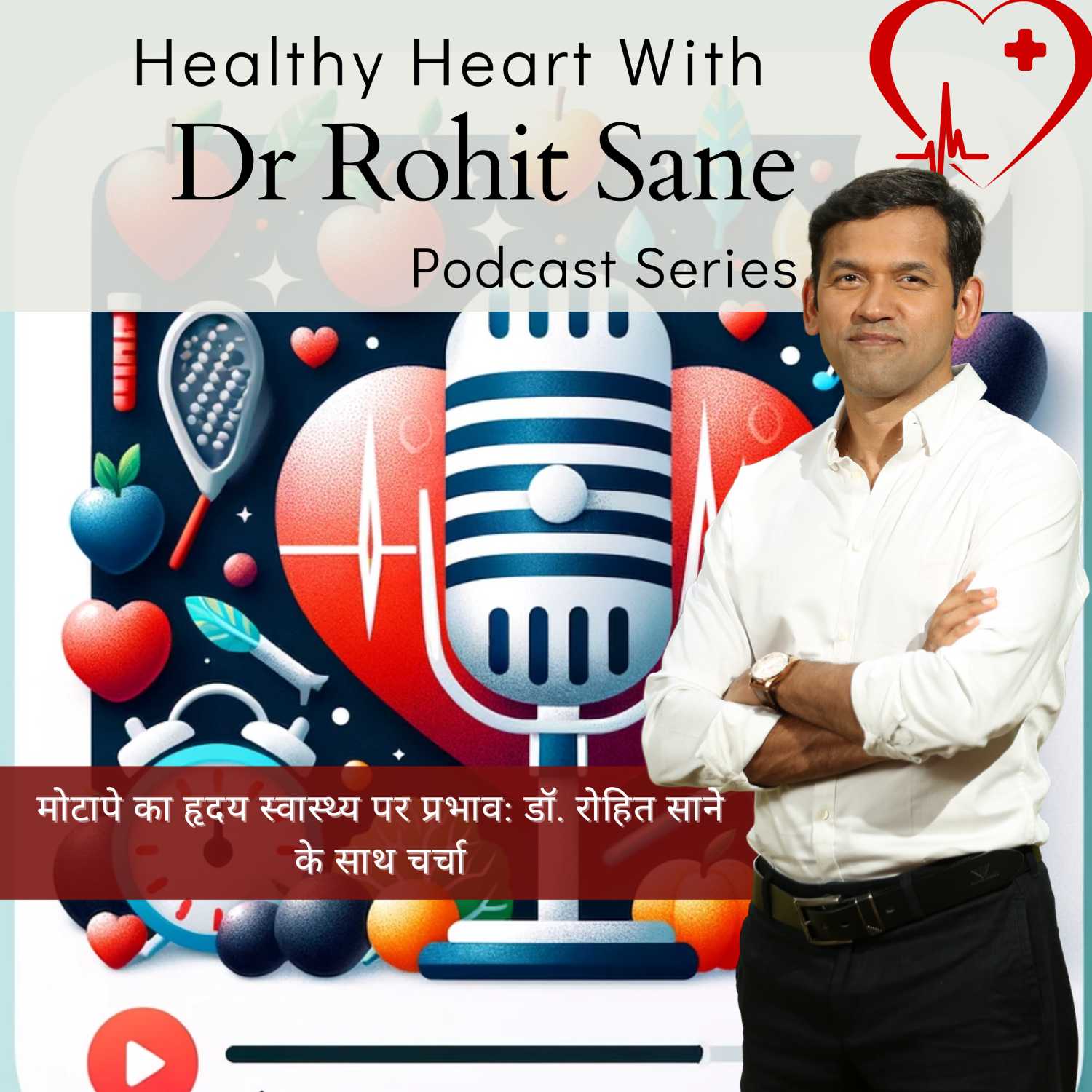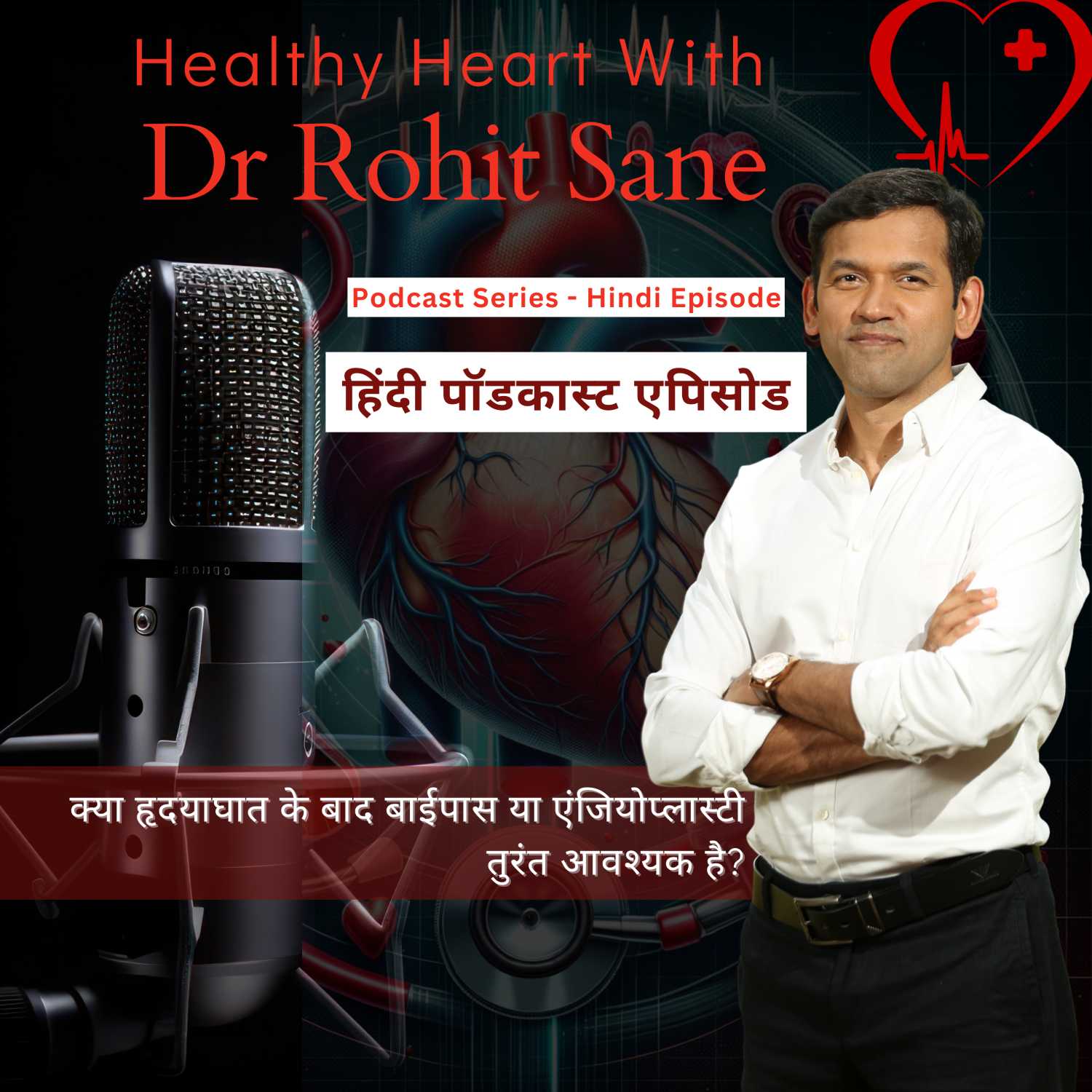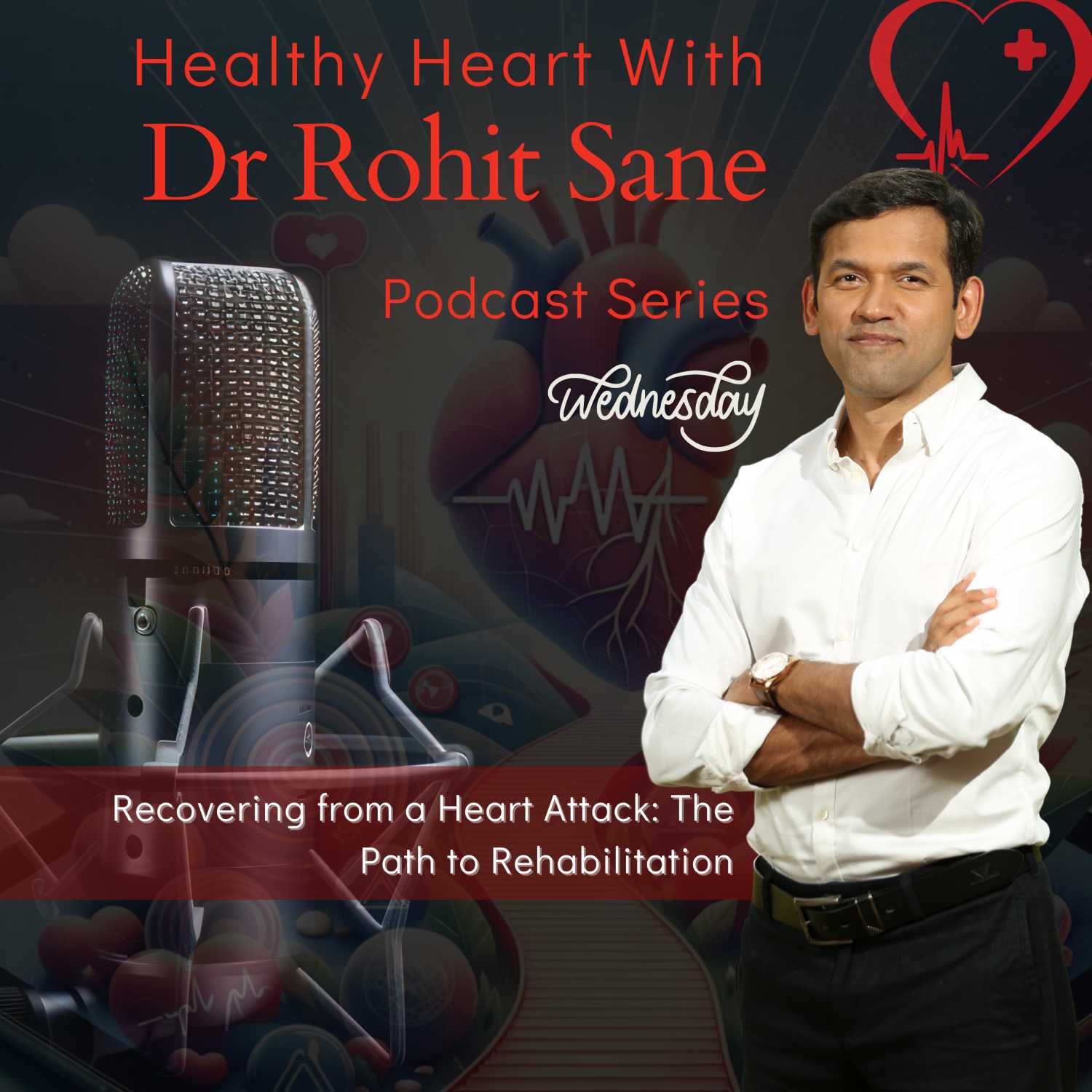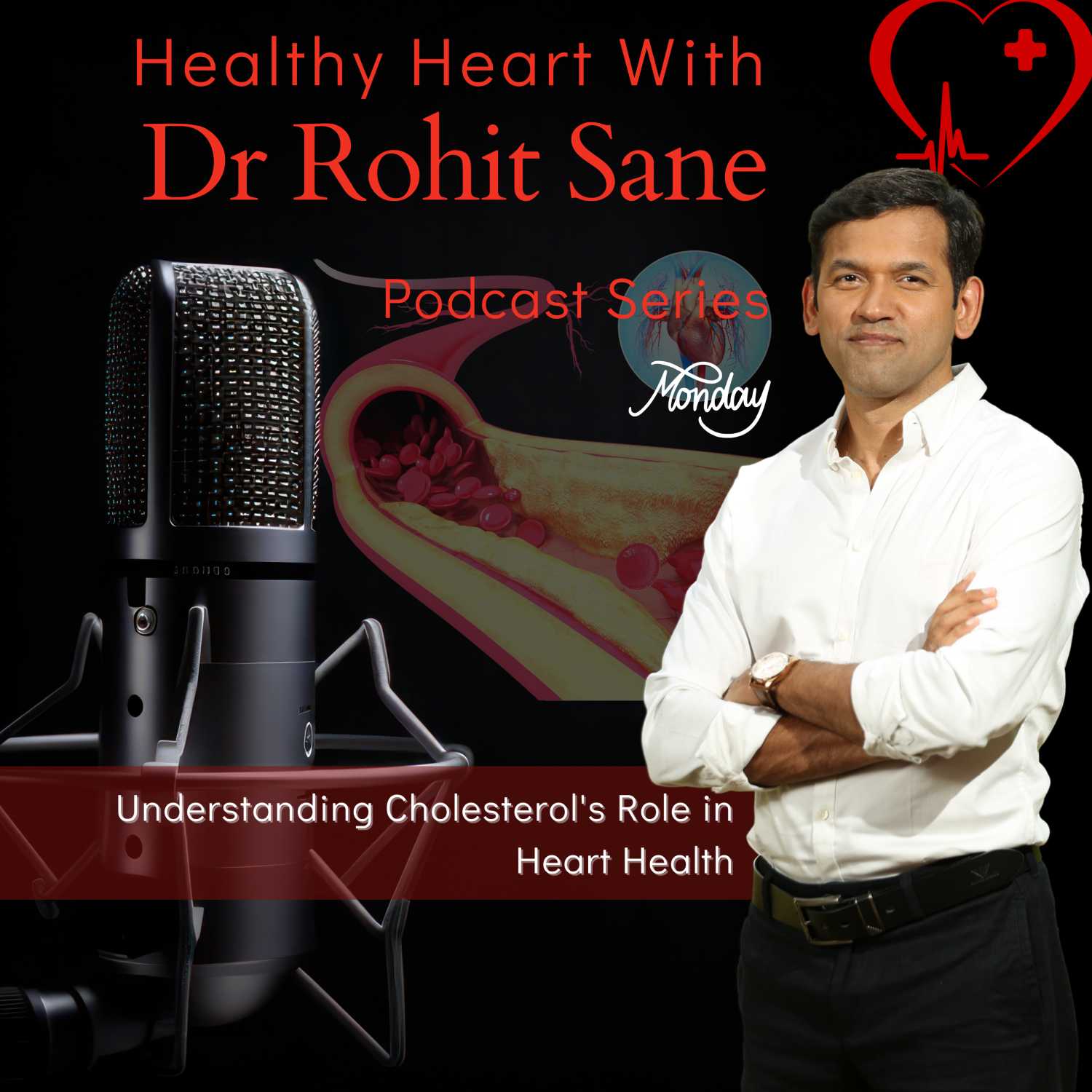Understanding Heart Blockages and Their Management | A Discussion with Dr. Rohit Sane & Dr. Aman Kapoor
Description
In this episode, Dr. Rohit Sane in discussion with Dr. Aman Kapoor, delves into the topic of heart blockages, a common concern that causes significant anxiety.
Key Topics Discussed:
What are Heart Blockages?
- Dr. Sane explains that heart blockages, medically termed atherosclerosis, occur when fatty plaques accumulate in the coronary arteries, leading to stiffened blood vessels.
Difference Between Fat Plaques and Blood Clots
- A crucial distinction is made between fat plaques (cholesterol deposits) and blood clots (formed by platelets). Heart attacks are primarily caused by blood clots, not just plaques.
Can Blockages Lead to Heart Attacks?
- Not all blockages result in heart attacks. Post-mortem studies show heart attacks often occur in areas without significant blockages, indicating the presence of a plaque does not guarantee a heart attack.
Factors Leading to Plaque Rupture
- Plaque vulnerability is discussed, with an emphasis on the thinness of the plaque’s covering (endothelium) being significant in whether it will rupture and cause a blood clot. Milder plaques (20-50%) are more prone to rupture than severe ones (80-100%).
Detection and Assessment of Plaques
- Diagnostic tools like CT angiography and invasive angiography with IVUS (Intravascular Ultrasound) assess plaque stability and predict rupture likelihood.
Preventing Plaque Rupture
- Prevention strategies include managing stress, maintaining a healthy diet, and regular exercise. These lifestyle changes significantly improve endothelial health and reduce the risk of plaque rupture.
Reversing Heart Blockages
- Dr. Sane reassures listeners that blockages can be reversed by increasing HDL (good cholesterol) and reducing LDL (bad cholesterol) to remove cholesterol from plaques. Lifestyle modifications, including stress management, dietary changes, and exercise, are key.
Madhavbaug’s Approach to Heart Health
The Role of Surgery
Case Studies and Research
- Several case studies and research papers available on their YouTube channel demonstrate successful blockage reversals through lifestyle interventions.
Actionable Takeaways:
Manage Stress: Incorporate stress-reducing activities into your daily routine, such as meditation, yoga, or hobbies you enjoy
Balanced Diet: Follow a heart-healthy diet rich in fruits, vegetables, whole grains, lean proteins, and healthy fats. Avoid excessive carbohydrates and high-calorie foods.
Regular Exercise: Engage in regular physical activity to boost cardiovascular health and maintain a healthy endothelium.
Join Community:
https://www.youtube.com/@HealthyHeartwithDrRohitSane
https://www.facebook.com/groups/heartheathwithdrrohitsane/
Heart Blockages, Atherosclerosis, Coronary Arteries, Fat Plaques, Blood Clots, Heart Attack Prevention, Plaque Rupture, Endothelial Health, HDL, LDL, Heart Health, Stress Management, Healthy Diet, Regular Exercise, Madhavbaug, Non-Surgical Treatment, Heart Disease Reversal, Cardiovascular Health, Dr. Rohit Sane, Healthy Heart Podcast

















